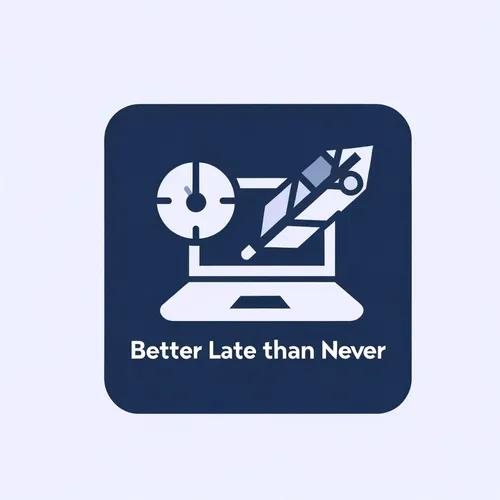Late Bloomers Triumph: Inspiring Stories of Success Beyond Age Prove Its Never Too Late to Pursue Your Dreams
- Author
- Quiet. Please
- Published
- Sat 30 Aug 2025
- Episode Link
- https://www.spreaker.com/episode/late-bloomers-triumph-inspiring-stories-of-success-beyond-age-prove-its-never-too-late-to-pursue-your-dreams--67563563
“Better late than never” is a phrase that has echoed through centuries, offering hope and resilience to anyone who feels out of step with life’s expected timetable. Originating as a direct translation from the Latin proverb potiusque sero quam nunquam and cited by Geoffrey Chaucer in the 14th century, the phrase reminds listeners that taking action, even belatedly, is better than never trying at all, and that success is not chained to youth or a strict sense of timing.
The stories of late bloomers are testaments to this idea. Take Vera Wang, who didn’t design her first wedding dress until age 40 after careers in figure skating and magazine editing, and Frank McCourt, who published the Pulitzer-winning memoir “Angela’s Ashes” at 66. Morgan Freeman found mainstream fame at nearly 50, while Gladys Burrill became the oldest marathon runner at 92. Each of these individuals rewrote what it means to “arrive late”, proving that age or setback is not an endpoint, but can be a pivot to perseverance and brilliant reinvention. As Tim Denning writes, late bloomers like Taikichiro Mori, who became the world’s richest person in his late eighties, defied conventional timelines and reshaped entire industries and cultural landscapes.
In an era defined by social media’s rush for youth-driven achievement, societal pressures can leave listeners feeling as though missed opportunities are final. But the truth—repeated by countless icons and everyday heroes—is that success doesn’t have an expiration date. The world’s greatest innovations often come from those who persist despite setbacks, who refuse to let late starts define their futures.
Listeners, if you’re feeling behind, let these stories be your guide and encouragement. It’s never too late to pursue dreams, switch gears, or take that long-postponed leap toward your goals. When doubts creep in, remember: better late than never isn’t just a saying—it’s living proof that the power of second chances and perseverance can transform delays into triumphs. Your timeline is your own to create. Keep going, because your opportunity isn’t gone—it just might be waiting for your next step.
